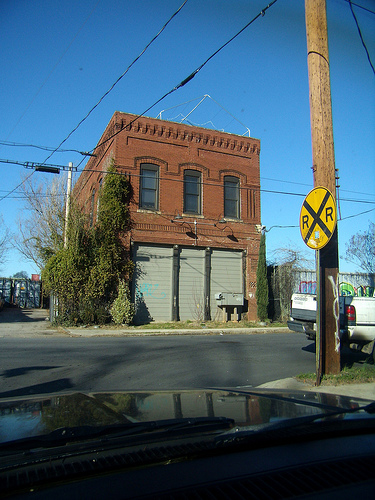 I think incremental development, modest projects by Small Developers focused on a specific neighborhood, present an genuine opportunity to get well past the usual arguments about gentrification. The usual narrative describes how immoral developers come into a neighborhood that is in rough shape and start renovating old buildings and building new ones. New trendy restaurants appear and before you know it rents are going up and folks who have lived in the neighborhood all their lives can no longer afford to live there.
I think incremental development, modest projects by Small Developers focused on a specific neighborhood, present an genuine opportunity to get well past the usual arguments about gentrification. The usual narrative describes how immoral developers come into a neighborhood that is in rough shape and start renovating old buildings and building new ones. New trendy restaurants appear and before you know it rents are going up and folks who have lived in the neighborhood all their lives can no longer afford to live there.
Here's where I think Small Developers can flip the script. If you are committed to working in a specific neighborhood, it may be a place that has a lot of room between what it is now and what it could be. As a small operator you have limited cash and limited credit, so you can only do so much. I am impressed with the approach Monte Anderson takes when recruiting tenants for some of the buildings he renovates or builds. He looks for a local entrepreneur that show promise and works with them to build their business to a point where they can qualify for an SBA 7A loan to buy the building. It is a win/win. Monte frees up his capital and credit to build or renovate another building in the neighborhood and the local entrepreneur is building their net worth and creating local jobs.
The next place where small operators can make a difference is in cultivating the local building trades. Chances are the plumbers, framers, electricians, drywallers and roofers already live in the neighborhood you want to work in and they may be traveling significant distances to find steady work on large projects. What if you could provide a steady backlog of work for those folks right in their neighborhood? It is going to be in your interest as a developer or builder to do so, since small outfits are usually impacted more severely than big operations when skilled construction labor is in short supply. Cultivating a reliable trade base is going to be the cornerstone of your business model as a small developer. How many tradespeople are close to being able to open up their own shop if they knew they had steady work for their crew? Maybe you introduce them to Janet the excellent local bookkeeper who knows Quickbooks and how lien releases and trade credit works. Small business people doing favors for each other can go a long way toward building local wealth and local jobs in the neighborhood. Maybe you guaranty their first line of credit at the lumberyard for a year to help them get on their feet. Introduce your framer to your banker. Before long you may be mentoring them so that they can own a couple buildings in the neighborhood. Building local wealth and local jobs could start with you in the place you are committed to. Start by taking the long view in cultivating relationships with your building trades. Keep your eye out for local bookkeeping talent.


